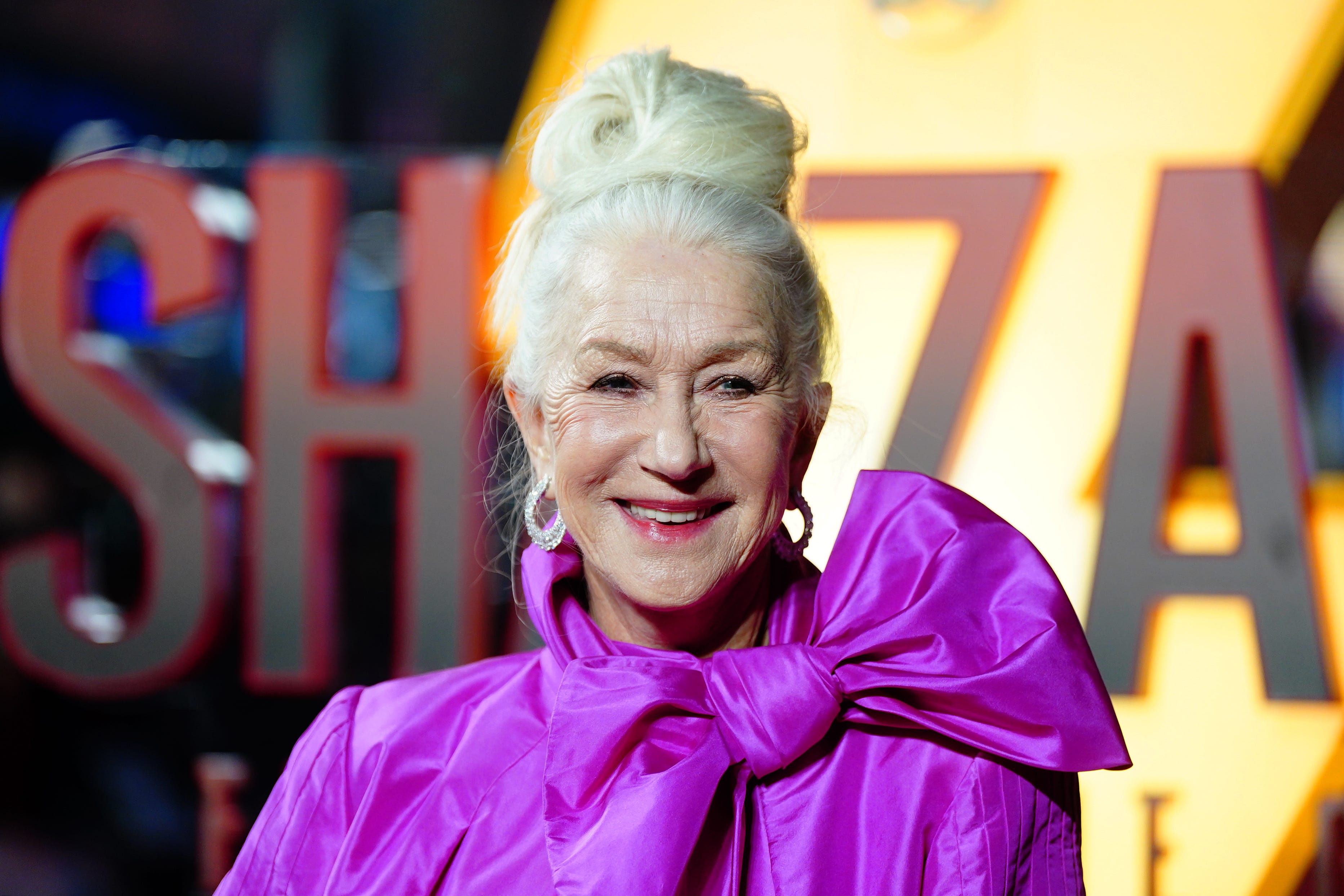Dame Helen Mirren: Upsetting and unfair to be treated differently as we age
The Age UK ambassador spoke out as the charity published analysis on agesim.

Your support helps us to tell the story
From reproductive rights to climate change to Big Tech, The Independent is on the ground when the story is developing. Whether it's investigating the financials of Elon Musk's pro-Trump PAC or producing our latest documentary, 'The A Word', which shines a light on the American women fighting for reproductive rights, we know how important it is to parse out the facts from the messaging.
At such a critical moment in US history, we need reporters on the ground. Your donation allows us to keep sending journalists to speak to both sides of the story.
The Independent is trusted by Americans across the entire political spectrum. And unlike many other quality news outlets, we choose not to lock Americans out of our reporting and analysis with paywalls. We believe quality journalism should be available to everyone, paid for by those who can afford it.
Your support makes all the difference.Dame Helen Mirren has branded it both upsetting and unfair that older people are treated differently, as new research suggested a third of over-65s have been subject to ageism.
The 79-year-old actor said “things need to change” as Age UK published its report indicating millions have had negative experiences due to their age, ranging from being treated with less respect to being threatened.
The charity, for which Dame Helen is an ambassador, said its analysis found that a third of people aged 65 and over and almost a quarter of people aged between 50 and 64 in England said they had been discriminated against due to their age.
Ageing happens to us all but, as we get older, life can get tougher. Many will start to be treated differently, which can not only be very upsetting but also unfair
Using population statistics and its analysis of the English Longitudinal Study of Ageing, the charity said this suggested around 6.1 million people aged 50 and over in England have faced ageism.
This can come on top of other forms of discrimination for some, the charity said, finding that around one in six women aged 50 or older said they had faced sexism, and more than half of people from minority ethnic backgrounds in this age category had endured racial or religious discrimination.
Age UK said while the “population is rapidly ageing, ageism remains rife” and has made calls to change attitudes, tackle poverty and inequality and ensure older people’s health and social care needs are “recognised and fully met”.
Dame Helen said: “Ageing happens to us all but, as we get older, life can get tougher. Many will start to be treated differently, which can not only be very upsetting but also unfair.
“Everybody, regardless of their age, should feel included and valued and that is what Age UK is striving to achieve.
“This is an ambitious but truly important challenge, as things need to change and it’s in all our interests to ensure that older people are respected and treated as the individuals that they are.”
The charity said that by 2040 it is estimated more than 40% of people in the UK will be aged over 50 and more than five million will be aged 80 or older, prompting a call for society to adapt “both to gain the most from the asset that is our older population, and to address the challenges faced by older people”.
We also need to think more about ageing as a country and how best to respond to it, and within Government, business and other sectors too
The charity said “big inequalities” in UK pensioner incomes mean it is only a minority living with moderate or comfortable incomes (17%) while most survive on minimum incomes or live in poverty (82%).
Age UK, which has strongly criticised the Government’s plan to restrict winter fuel payments only to those receiving pension credit, has previously said 2.5 million pensioners across the UK who will lose the payment this year will struggle financially as 1.6 million are in poverty and 900,000 have incomes just above the poverty line.
They also highlighted that 71% of disabled pensioners will lose the winter fuel payment, despite many having high energy costs due to poor health or disability.
Paul Farmer, the charity’s chief executive, said: “Society can play a huge role in how we view ageing and older people in our communities and consequently how we feel about our own ageing when our turn comes.
“By changing society’s views for the better, we hope that future generations can arrive in later life better prepared for the challenges that ageing can bring and with more opportunities to get the most from it. Our end goal must be for older people to be valued and included – we have to change how we age.”
He added: “We also need to think more about ageing as a country and how best to respond to it, and within Government, business and other sectors too.
“If we don’t, we are sleepwalking into a national crisis, and we can no longer ignore the facts or consequences of inaction. Along with climate change and the technology revolution, ageing is one of the big global trends that is increasingly impacting on us.”
Caroline Abrahams, Age UK charity director, said: “The fact is that all of us stand to gain from a more balanced and informed view of ageing and of older people, and our country stands to benefit too, given how readily we seem to ‘write off’ the enormous contributions people make in their fifties, sixties and beyond – contributions we can ill afford to do without.”